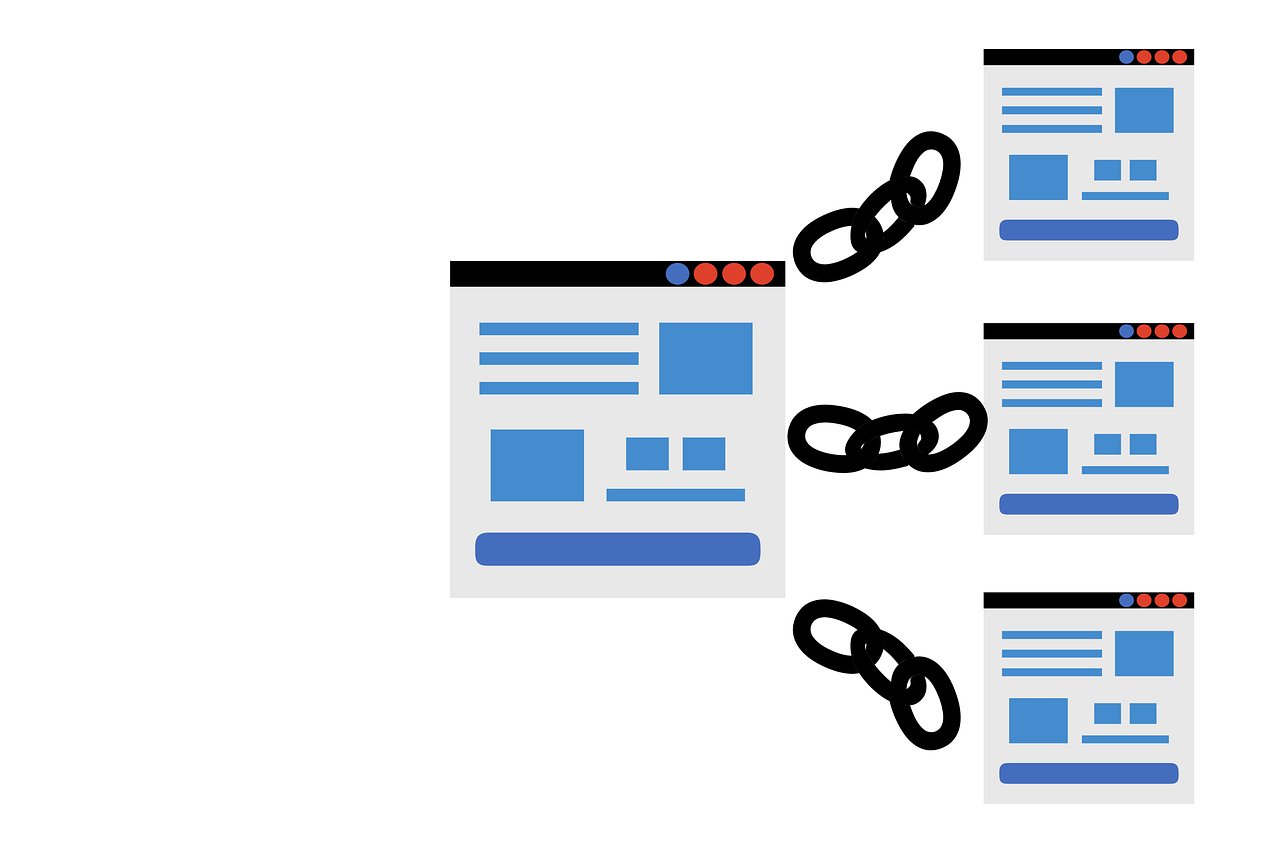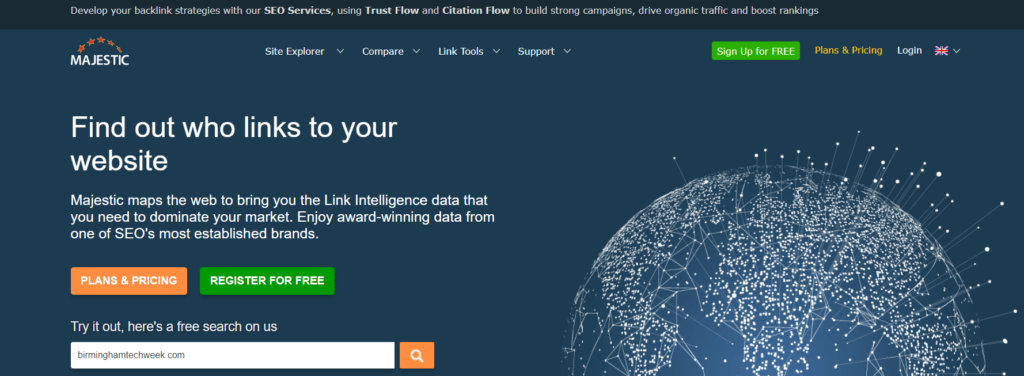
Introduction
Everyone wants more search traffic on their website, but the problem is that only a few of them get it. Almost 90% of bloggers never get 1000 visits a day from Google or other search engines. That’s sad but true. So, how do you attract an audience to your website through an organic search? Well, high-quality backlinks are the key.
If you don’t have enough backlinks, your website cannot convert, or you can’t just market your brand. Are you here to learn about backlinks?
If yes, keep reading to find details like backlinks, the best backlink checker, and more.
What are Backlinks?
Backlinks or inbound links are the links that a website or blog post has with the pages on other websites related to your topic. Tons of links can boost your ranking on the Search Engine Results Pages (SERP), and more people will visit your website.
It is easier to rank a website with many inbound links.
A great article posted on a blog with 100 good quality inbound links will rank better than average quality content with 1000 links. So, it is evident that you need to focus on getting high-quality links for your blog.
What are Dofollow Backlinks?
These backlinks help directly with SEO by passing the PageRank authority of the source page to the destination page.
What are Nofollow Backlinks?
These backlinks are tagged with the nofollow attribute (rel=” nofollow”) in HTML, which prevents PageRank authority from being passed from the source website to the destination site.
Nofollow backlinks don’t contribute much to ranking, but they still play a vital role in SEO.
What are the types of backlinks in SEO?
There are several types of backlinks in SEO, including:
- Editorial Backlinks: These are links embedded within high-quality, relevant content.
- Guest Blogging Backlinks: These are links attached to guest articles sent to established websites.
- Business Profile Backlinks: These are links included in business profiles on various platforms.
- Webinar Links: These are links attached to webinars, which can be a great source of backlinks if participants or other websites share the webinar.
- Free Tool Links: If a business offers a free tool and gets linked by others, those are considered free tool links.
- Contextual Backlinks: These are anchor text links placed within the main content of a webpage that users read.
- Branded Backlinks: These hyperlinks include a company’s brand name in the anchor text.
Why are backlinks important?
In simple terms, backlinks mean other websites have the link of your website to their posts, profiles, comments, or any section.
It doesn’t matter where the link is. It is a backlink if your website’s link is on another website. The links may be your website URL, posts, or page URLs.
Google loves backlinks, and the more your website has, the more chance you have to rank it on Google and gain organic traffic.
But remember that when we talk about link building, they should be high-quality. A high-quality backlink means the links are pasted to websites with higher Domain Authority (DA) ranging from 50 to 100.
The more the DA, the better the link’s quality. You got the idea of backlinks; let’s see how they work.
So, let us understand it with an example:
Suppose person X does not know the address of person Y, then he will take the help of people who belong to their locality or city, right?
People who know Y’s address can help X reach the destination, and the more people who know Y’s address, the more trust and accuracy will be there.
Similarly, Let us take here Google as X, who wants to crawl a website Y and does not know much about that website, so the algorithm will find how many other websites know about Y, making it easy for Google to crawl a website Y.
So, backlinking helps our website gain more trust, fame, and authority, improving search engine ranking. Websites like Ahrefs, Moz, and SEMRush can show how many websites link to your site.
Backlinks help any website in multiple ways, but you should know some points when creating a backlink to your business website or blog.
Why do you need to create backlinks?
Creating links helps you build authority and trust. In addition, it will help your site to rank higher on search engines. The more quality links you earn, the more popular your site will be.
It would be best to have links from high-authority websites to rank your website on Google’s first page. It means that you should create inbound links from credible sites only.
Backlinks also increase your authority and trust among your readers and visitors. They will get more confident about your site and repeatedly buy products from the same place. This process works like a chain reaction.
What do quality backlinks look like?
Here are a few of the characteristics of high-quality backlinks:
Relevancy: First of all, links should be relevant to your content. For example, you are writing a blog post about SEO. Then, only link to other SEO-related blogs or websites. Don’t link to any other site unrelated to the topic.
Likewise, the site should also use your keyword in its link description and appearance.
Authority: The quality of inbound links depends on the site’s authority that you are linking to. The higher authority sites are, the better your backlink will be. So, you need to seek websites that have a high page rank.
Traffic: The more traffic the backlink website has, the more visitors you will get. Finding a popular blog will be a fantastic backlink for your website if you can find it.
Quantity: The number of inbound links to your site matters. The more links you have, the better for your site. Every little bit helps in getting a higher ranking on search engines.
So, try getting more quality links from other authoritative sites.
Indexation: It is essential for the quality of links as it can help index your site by search engines. So, it would help if you created more inbound links by linking to more authoritative sites.
Key Takeaways
- Understanding Backlinks: Backlinks are the inbound links or incoming links from one website to a webpage on another website.
- Importance of Backlinks: Backlinks are crucial for SEO as they are seen as votes of confidence by search engines like Google. Pages with many relevant backlinks tend to have high organic search engine rankings.
- Quality Over Quantity: Not all backlinks are authoritative equal. A single high-quality backlink can have more authority than numerous low-quality backlinks. High-quality backlinks often come from trusted, authoritative websites and include your target keyword in the anchor text.
- Building Backlinks: Building backlinks is a strategic process that involves creating content worthy of being linked to and then promoting that content to other website owners in your industry. The goal is to earn a link on their website that points back to yours.
How do you get quality backlinks like a Pro?
There are various ways through which you can create backlinks for your blog or website, and here are a few of those:
1. Become a Source For Reporters and Bloggers
So, here is a deal. If you want high-quality backlinks, you can ask the reporters of popular blogs for link requests. They might be willing to link to your blog if you are a source for them.
This can help you in getting lots of inbound links from trusted sources.
Just use a free service called Help a Reporter Out (HARO), which connects you to many journalists and bloggers. Another great thing about this service is that you can request reporters for an exclusive link request.
2. Publish High-Quality Content
Create good quality content for your blog or website. Remember, you create high-quality or research content to attract visitors to your site and build links.
So, you need to be creative in creating quality articles or blogs.
You can either write posts related to your product or service in the case of an eCommerce business or create an informative article related to your niche in the case of an informational site.
3. Use Content Formats Proven To Generate Links
Various content formats can help you in getting links. Let us look at some of these content formats.
Infographics: Infographics are great for link-building. You can create an infographic related to your product or service and then use the same infographic to get links from other websites or blogs.
You will be able to get more high-quality links by using this strategy.
Round-ups: Round-ups are also great ways to get quality links. Likewise, you can create round-ups for your blog or website and publish them on others.
It will help you in getting a high-quality backlink from different websites.
White Papers: If you are searching for a topic to write an article or blog post, you can create a white paper related to the topic. White papers are excellent for link-building as others can share the information in these articles on their blogs and websites.
4. Publish How-to Guides
Create How-to Guides that can help other bloggers and website owners and give them your links in return. This will help you get links from authoritative sites and blogs related to your niche.
Just create a how-to guide related to your website’s niche, publish it on blogs or websites like Web Designer Hub, and ask them to include links to your site in return.
5. Promote Your Content via Social Media Channels
Social media is vital in creating quality inbound links for any blog or website. Many experts believe social media channels can help you get links from other bloggers or websites.
In addition, it will increase the traffic to your website.
So, you should promote your content on social media channels like Facebook and Twitter. It will help you get inbound links from other blogs or websites related to your niche.
What is the best backlink checker?
Well, there are a couple of tools available to check backlinks. However, some of the best ones are:
1. Ahrefs

2. Moz

3. SEMRush

4. OpenLinkProfiler

5. Majestic

How can I create backlinks for free?
Well, here is the deal. You can get backlinks for your blog posts for free if you are a blogger. You can sign up for different forums and groups on those platforms.
Some of the standard free SEO backlinks methods include:
- Ask your connections
- Get in touch with industry websites and publications
- Repurposing your content
- Input your high-value comments on websites
- Use Quora
- Ask other bloggers to link back to your site
- Free guest posting
- Appear as a guest on any relevant podcasts having a similar niche
Can I buy backlinks?
You can, but most agencies will give you links bought from PBNs, brokers, forums, and other resources. Buying links from these resources can put your website at tremendous risk.
However, you can search for the best agencies, and if you find one, you can go ahead with them.
FAQ
How do backlinks work in SEO?
Backlinks are the links from one website to a page of another website. They are one of the ranking factors of SEO.
They act as important signals to search engines like Google. When one website links to another, it increases its authority and is considered E-E-A-T, a quality criterion for a webpage defined by Google.
The more backlinks you get from websites with high authority, the better your website will look in Google’s eyes.
What is the difference between a URL and a backlink?
A URL is the complete address of a webpage on the internet. But a backlink is a hyperlink from one website to another.
How long do backlinks take to show up in SEO?
It may take approximately ten weeks for a new backlink to affect your SEO, depending on factors like Keyword Difficulty (KD) and the quality of your backlinks.
How many backlinks do you need for SEO?
The number of backlinks needed for effective SEO can vary, and it depends on factors such as your website’s Domain Authority and the PageRank of the incoming backlinks.
However, it’s important to note that quality is more important than quantity.
How do backlinks increase website traffic?
High-quality backlinks can improve SEO and boost Search Engine Results Pages (SERPs) ranking for organic traffic.
When other websites link to your content or your webpage, it helps show search engines that your content is credible and authentic, which can increase traffic and visitors to your content.
Conclusion
So, this was all about how to get high-quality links for your blog or website. Remember, you need to create quality content for your blog or website and, at the same time, make sure that the content is unique and original.
Moreover, try to generate high-quality backlinks from trusted sites or blogs related to your niche to get your website to rank higher in search engines.
Do not create low-quality links- linking your website to a website having low Domain Authority can affect your website’s search engine ranking and may get penalized by Google.
Always check the DA of any website before creating any backlinks. You can get help from Ahref or Moz to check the DA of any website or blog.
From a long-term perspective, it can decrease your website’s ranking and DA. So, say no to low-quality links.
More Resources:
Link Building: The Correct Way to Do It for SEO
Search Engine Optimization – What is SEO?

Vijay Kumar is a digital marketing expert and founder of TechZant.
He is passionate about helping businesses grow their online presence through SEO and data-driven strategies.









